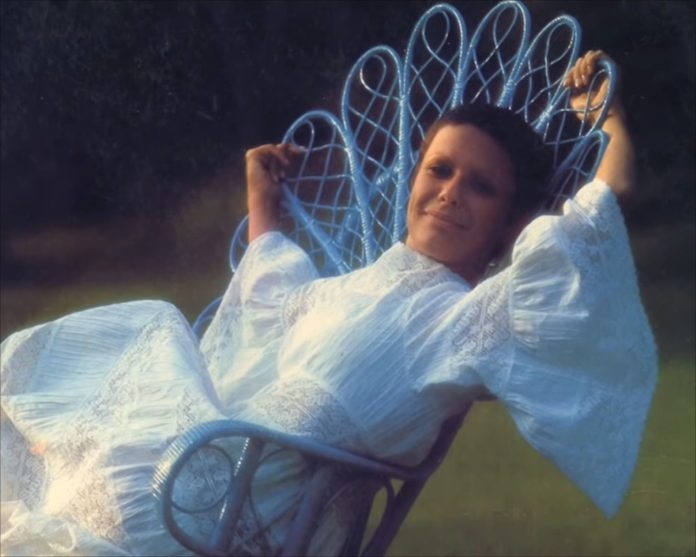The true nature of Brazilian music is positively feminine.
The feminine mystique of Brazilian song. Unique? Perhaps. Impactful? Absolutely.
by Scott Adams
Take a quick peek at any of our streaming channels and you’ll see songs from Rio’s Marcela Biasi, New York’s Bebel Gilberto, Atlanta’s Janelle Monae, and Sao Paulo’s Jean Felix.
They follow in the path forged by the pioneering women of Brazilian music, beginning with Brazil’s first female orchestra leader and composer Chiquinha Gonzaga in the late 1800’s, and Tia Ciata, who nurtured Samba’s birth in Rio de Janeiro, in 1916.
The ‘household names’ of Brazilian music followed. From Carmen Miranda to Marisa Monte and Elis Regina, whose birthday is March 17th.
- You can read Elis Regina’s bio-book here.
A Musical celebration of Women’s History Month
And every year we salute the women of Brazilian song during Women’s History Month by celebrating with The Sounds of Brazil’s weekly radio show, Songs In The Feminine Key.
Where do we start? Maybe with Joyce, who was the first femme in Brazilian song to write songs from a woman’s point-of-view. Or Gal Costa and Marisa Monte – thought of by many as Brazil’s greatest Divas.
- Sign up for my weekly Connectbrazil newsleter here.
Astrud
Astrud Gilberto transformed Bossa Nova and Brazilian jazz by coming to New York as João Gilberto’s wife, and then staying on to become the world’s musical ‘girl from Ipanema’.
Back home, she was a virtual unknown due to a plethora of rising stars to fill the feminine sky: Nara Leão, Sylvia Telles, Miucha (read this story), Rita Lee, and Wanda Sa.
That’s the beginning of a long list of 60’s stars who paved the way for other women to follow: Rosa Passos, Jane Duboc, Rosalia de Souza, Tutti Bae, Maria Rita, Salena Jones, Bebel Gilberto, Sabrina Malheiros, Zelia Duncan, and many more.

The Women of Brazilian Song: Decades
Carmen Miranda broke cultural barriers in the 30s to become a larger-than-life symbol of Brazilian vitality, and she carried her country’s music with her.
Elizeth Cardoso was the musical mother who incubated the first Bossa Nova song in the late 50s to add another important aspect to the feminine mystique of Brazilian song.
She represents a cadre of pre-Bossa female vocalists who ruled Brazilian radio in the first half of our century past, including Doris Monteiro, Hebe Camargo, Dalva de Oliveira, and Aracy de Almeida.
And that’s just on the vocal side of Brazilian music. Rosinha de Valança picked up her guitar in the mid-60s to break into Rio’s studio session scene and went on to become part of Sergio Mendes’s first US band.
She opened the door for generations of Brazilian women players: Eliane Elias, Badi Assad, Celia Vaz, and Tania Maria to continue the traditions of Brazilian jazz.
March Birthdays, Plus ‘One’
March is a month that also celebrates birthdays for Flora Purim, choro’s Ademilde Fonseca, and singer songwriter Luca Mundaca. Jazz vocalist Marisa Gata Mansa, Fabiana Passoni, Carol Saboya, and MPB’s Nora Ney celebrate this month. Birthdays for Zizi Possi, Eliane Elias, Anitta, and Astrud Gilberto occur in the last half of March.
Celebrating Elis Regina:

Many years ago, I was able to play a part in preserving Elis Regina’s life story, the English version of the book Furacão Elis (Hurricane Elis) by Regina Echeverria and translated by Robert St-Louis. Copies are available in Portuguese, here.
Away from music, Elis was a mother, a wife, a change agent for Brazil’s music industry, and a very public supporter of women’s rights.
Did you know that in the mid-70s’ she underwrote the newspaper Nós Mulheres (We Women)? It was published by the Women’s Association of Sao Paulo.
Furacão Elis is free to read in English anytime from this page.
Happy Listening,
Scott Adams
The Waters Of March Is Brazil’s Most Popular Song
Did you enjoy ’The Waters of March Is Brazil’s Most Popular Song’? If you did, why not join us at Connect Brazil?
Sign up for our emails on Brazilian music, travel, friends, and fun. Listen to our ‘always live’ streaming station and streaming music channels, always free. Visit us on Facebook, and Twitter, and browse our Lifestyle Directory for Brazilian events coast to coast.









